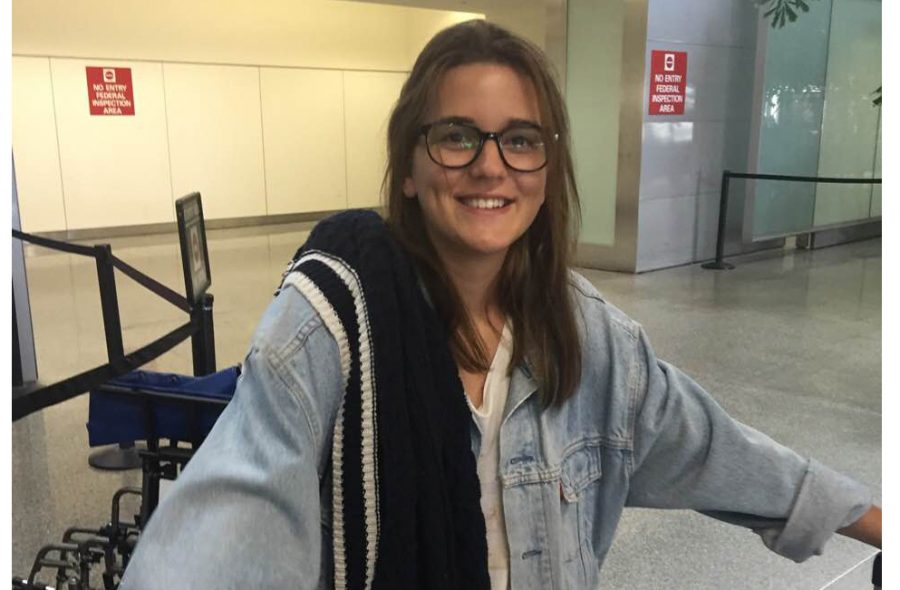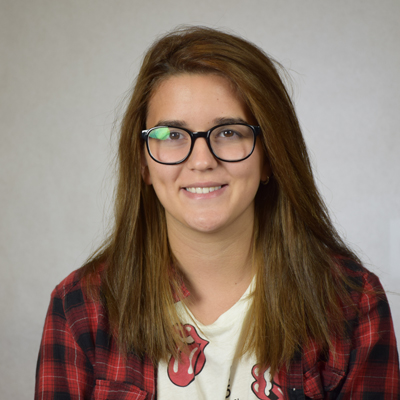Serbian Arrives with Open Mind
October 20, 2016
Imagine a life without Patagonia jackets, Starbucks, CamelBak water bottles, and wearing shorts to school.
That’s the life I’ve had for 17 years.
When I flew to the US from Serbia for the first time this August, I had reached a new dimension, or so I felt. I arrived 2 days before school began and discovered an environment completely different from that of my former Serbian high school. A 16-subject course load had changed to 7. No gym became 2 gyms and multiple courts. It seemed too-good-to-be-true.
Open campuses, block scheduling, and mandatory 4-year PE no longer comprised my high school experience. I was introduced to courses like journalism, leadership, wood technology, video production, and much more that I had never encountered. The most surprising change, though, was the opportunity to use calculators in math.
As someone who has watched American movies of good and bad quality my whole life, it feels as if I’m now a part of one. Clichés such as American football and cheerleaders in films were never so exciting as the first time I went to a football game this September. To me, every face and voice still seems like an actor’s.
Teachers are the ones who have made me love this experience even more. Campo’s teachers are friendly and willing to talk about subjects that my last teachers would brush off. Every one of them makes a class look like a performance to me, and a great one at that. I never thought I would enjoy going to school until I moved here.
I have also realized that grammar and pronunciation aren’t the hardest aspects of learning a new language; forming sentences on the spot is. I had no language barrier in a Serbian classroom, where I could just switch to my 1st language and carry on with the conversation. If I freeze while talking here, communication is impossible. There’s no way that the person who I’m talking to can read my mind.
Additionally, the Bay Area’s vernacular is quite different from the British English I learned in school. Filler words such as “like” are not in my vocabulary, and I’m perceived more as a struggling foreigner than a real English speaker by my peers. It feels as though they aren’t aware that I’m speaking in a language that I learned in school, the same as they are now learning Spanish or French.
Campolindo students are given opportunities that kids, where I’m from, are not. Even though high school students in Serbia don’t have the opportunities of driving and earning their own money, they seem more mature. There’s a hint of harshness in my country that almost forces kids to grow up fast. Students here go out to lunch for fun and occasionally rebel by breaking the law, while Serbian students mostly have fun with that 2nd option.
My peers here are from a largely different financial background than those I have in Serbia. As reported by the Statistical Office of the Republic of Serbia, an approximate wage this year is 233.37 EUR/Month, or about 255 dollars. A student here earns almost as much money in a month with 1 part-time job as my mom earns in a month with 3 jobs. Her work is tough, but the beauty of it is that you’ll see her celebrating with a smile at the end of each week.
Having lived here for almost 2 months, being of a different culture sometimes makes me anxious. I have never been a very patriotic person, but suddenly I feel something of a desperation to return to a place where I have common ground with my classmates. I want to share my knowledge of my country with people who have interest, and it doesn’t seem as if many at Campolindo do. Although I didn’t come here to share my traditions, but to obtain new ones, it is frustrating that so few students seem responsive.
“We educate every student to excel and contribute in a global society,” reads a “school-wide learning outcomes” poster on one of my classroom walls. Is this true? America’s climate regarding immigrants, refugees, and people from other countries seems to be one of distrust and distaste, but I know first-hand that anyone who feels superior to someone else based on where they were born is living in a bubble. We spent most of our lives in one culture, so it’s a huge part of us, and it shouldn’t divide us.
Cultural Diversity Club is one of the ways that students can become more involved, but communicating with foreign students is also informative. I wish students here simply talked to me, even though I can’t talk as fast as they can. My intelligence can’t be easily seen if you don’t give me that chance, and no one likes to be seen as an alien.
This year I won’t see snow during winter, celebrate Christmas the same as I always did, or see Danube at night. Do I regret that? Not one bit. Living with a closed mind is boring, and when I chose to leave my friends and family for a year to experience this novelty, I was completely sure of that.

